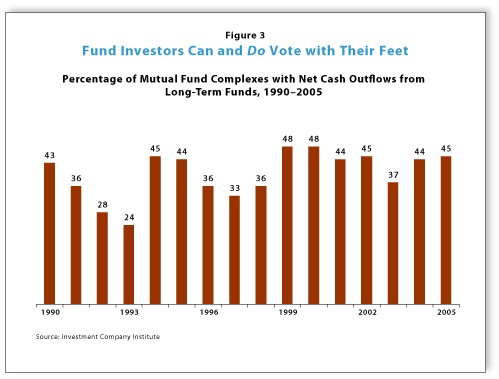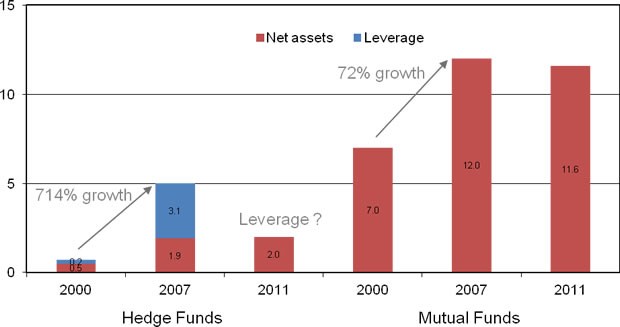ICI The Differences Between Mutual Funds and Hedge Funds
Post on: 3 Июль, 2015 No Comment

Mutual funds and hedge funds differ in many ways, particularly the fees charged; leveraging, pricing, and liquidity practices employed; the degree of regulatory oversight to which each is subject; and the characteristics of the typical investors who use each investment vehicle.
U.S. mutual funds are among the most strictly regulated financial products. They are subject to numerous requirements designed to ensure they operate in the best interests of their shareholders. Hedge funds are private investment pools subject to far less regulatory oversight.
Regulatory Requirements
Mutual funds are investment companies that must register with the U.S. Securities and Exchange Commission (SEC) and, as such, are subject to rigorous regulatory oversight. Virtually every aspect of a mutual fund’s structure and operation is subject to strict regulation under four federal laws: the Securities Act of 1933. the  Securities Exchange Act of 1934. the Investment Company Act of 1940 and the  Investment Advisers Act. The SEC is charged with overseeing the mutual fund industry’s compliance with these regulations. The  Internal Revenue Code sets additional requirements regarding a fund’s portfolio diversification and its distribution of earnings, and the National Association of Securities Dealers, Inc. (NASD) oversees most mutual fund advertisements and other sales materials. In addition, mutual funds must have directors who are responsible for extensive oversight of the fund’s policies and procedures. For virtually all funds, at least a majority of their directors must be independent from the fund’s management.
The  Investment Company Act is the cornerstone of mutual fund regulation. It regulates the structure and operation of mutual funds and requires funds to safeguard their portfolio securities, forward price their securities, and keep detailed books and records. In addition, the 1933 Act requires all prospective fund investors to receive a prospectus containing specific information about the fund’s management, holdings, fees and expenses, and performance.
Hedge Funds
Hedge funds—unlike mutual funds—are not required to register with the SEC. They issue securities in “private offerings” not registered with the SEC under the Securities Act of 1933. Furthermore, hedge funds are not required to make periodic reports under the Securities Exchange Act of 1934.
Like mutual funds and other securities market participants, hedge funds are subject to prohibitions against fraud, and their managers have the same fiduciary duties as other investment advisers.
Fees
Federal law imposes a fiduciary duty on a mutual fund’s investment adviser regarding the compensation it receives from the fund. In addition, mutual fund sales charges and other distribution fees are subject to specific regulatory limits under NASD rules. Mutual fund fees and expenses are disclosed in detail, as required by law, in a fee table at the front of every prospectus. They are presented in a standardized format, so that an investor can easily understand them and can compare expense ratios among different funds.















